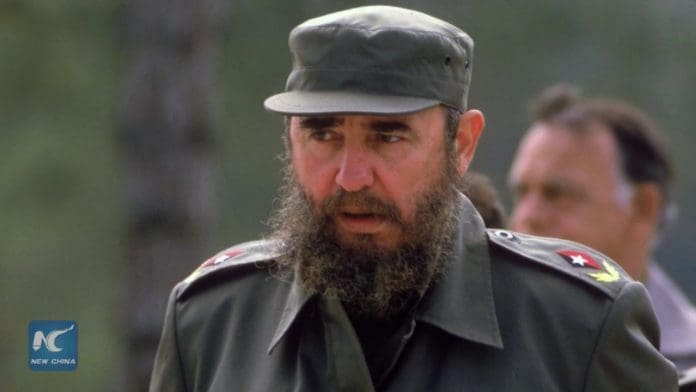Sierra Leone’s Cuban Embassy hosted solemn commemorations this week for Fidel Castro’s 99th birth anniversary, organized by the Hugo Chávez International Foundation for Peace.
Alimamy Bakarr Sankoh, the foundation’s director, addressed diplomats and guests, hailing Castro as a “revolutionary icon” whose legacy reshaped Cuba and inspired global anti-colonial movements.
Castro, born August 13, 1926, emerged from humble beginnings—his father a Spanish-American War veteran, his mother a domestic worker. Educated in Jesuit schools and Havana University’s law program, he gained early notoriety criticizing U.S.-backed leaders. His 1953 assault on Batista’s Moncada barracks sparked a revolution that triumphed in 1959 with just 12 surviving fighters, including his brother Raúl.
Post-revolution, Cuba transformed from a U.S.-aligned sugar exporter to a symbol of resistance. Sankoh highlighted Castro’s support for African liberation, citing Cuban troops and doctors aiding Angola, Namibia, and South Africa against apartheid. “When Ebola struck West Africa,” he noted, “Cuba led medical relief while others hesitated.”
Despite 60 years of U.S. sanctions and alleged assassination plots, Castro’s government achieved near-universal literacy and healthcare. His 2008 retirement preceded a cautious U.S. thaw under Obama, though Castro refused to meet him, wary of “imperial gifts.” He died in 2016, aged 90.
The foundation unveiled the “Fidel Castro Home for Elders,” urging Africa to build monuments honoring his solidarity. “Every doctor Cuba sends here,” Sankoh declared, “proves his legacy lives.” His voice echoed through the hall as attendees chanted: “¡Fidel vive! ¡Chávez vive!”
Source: newsghana.com.gh











